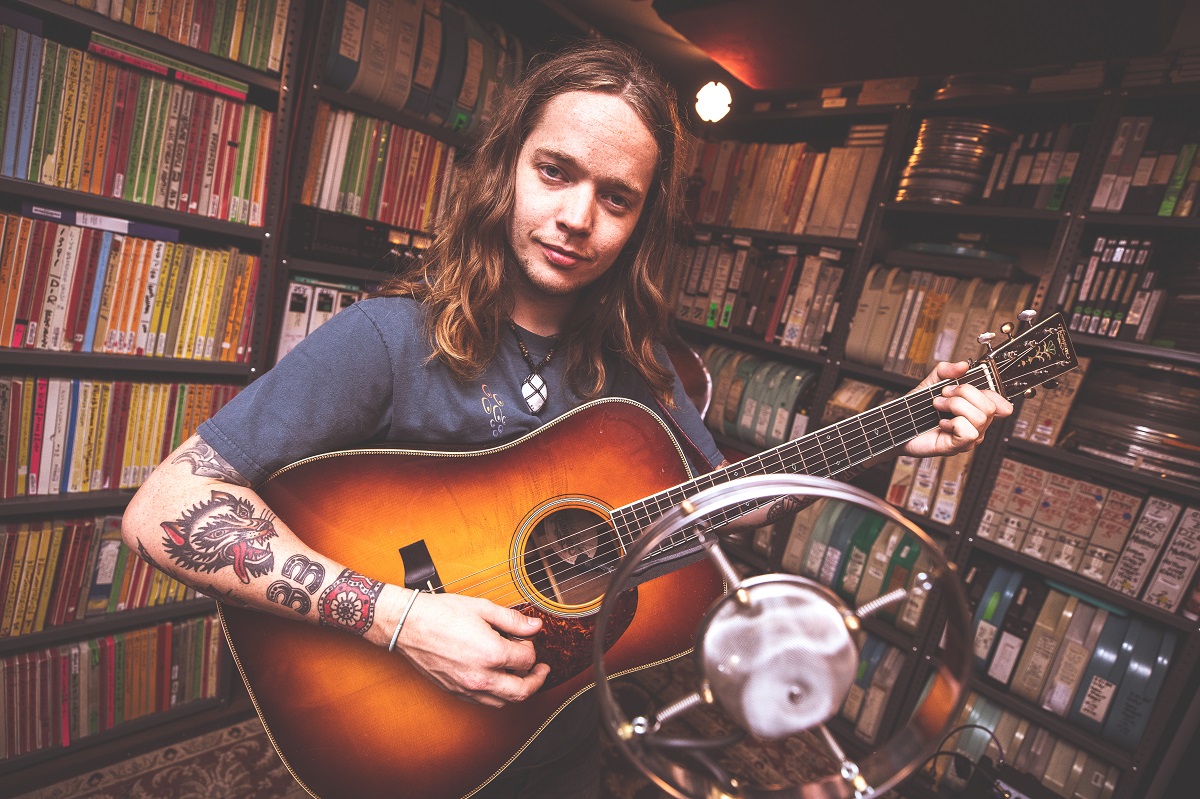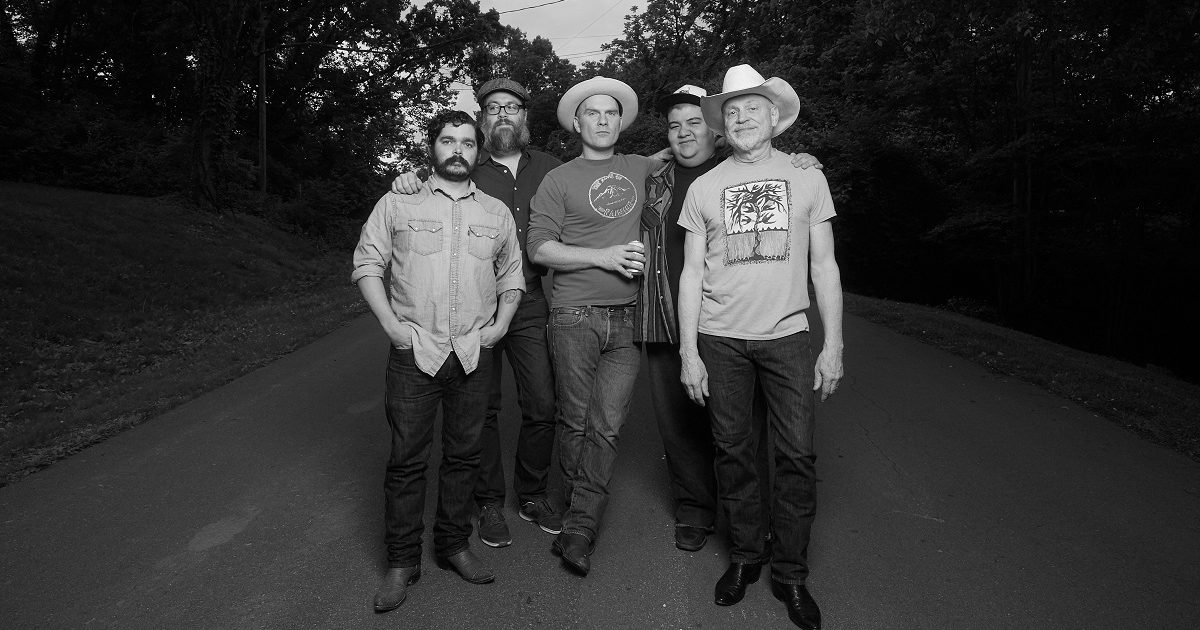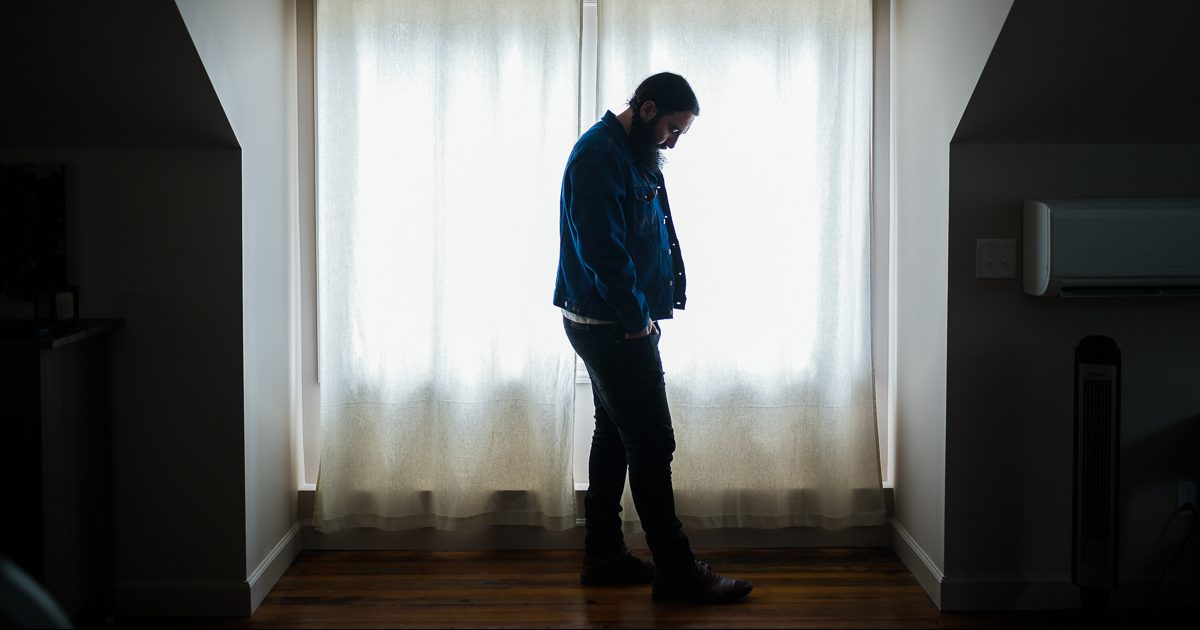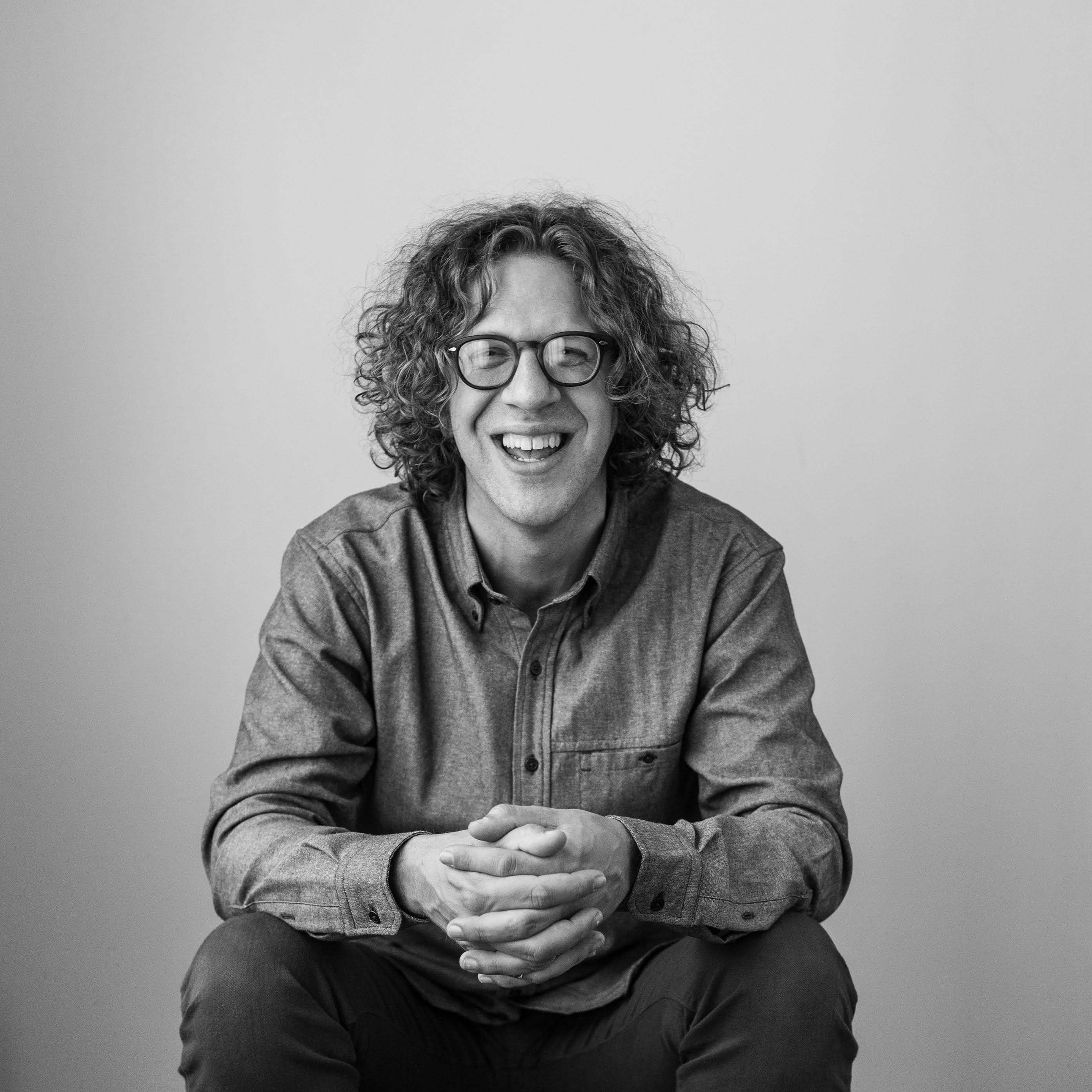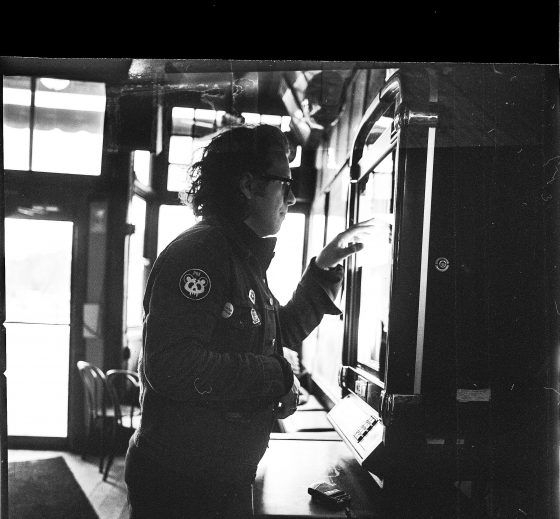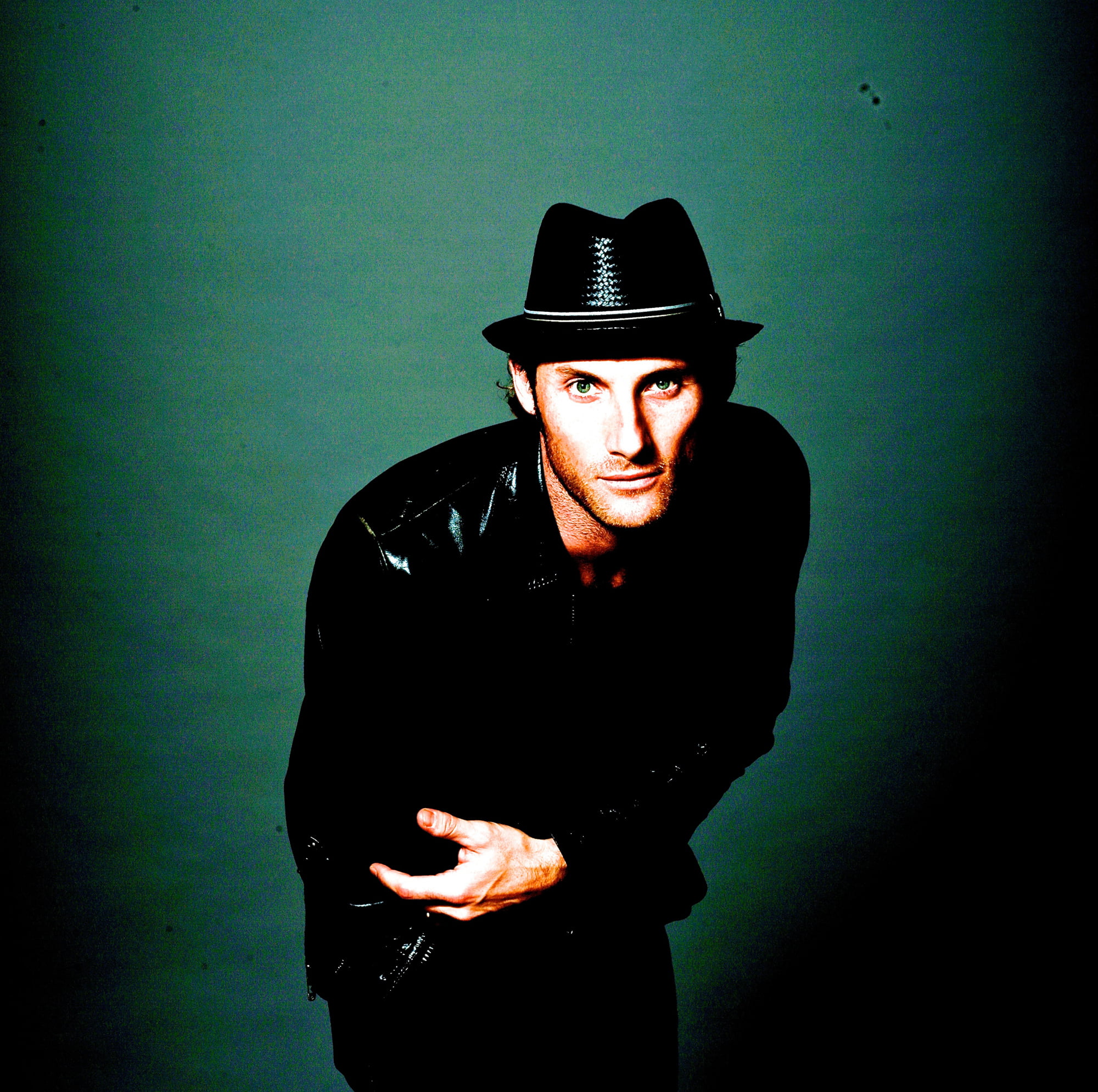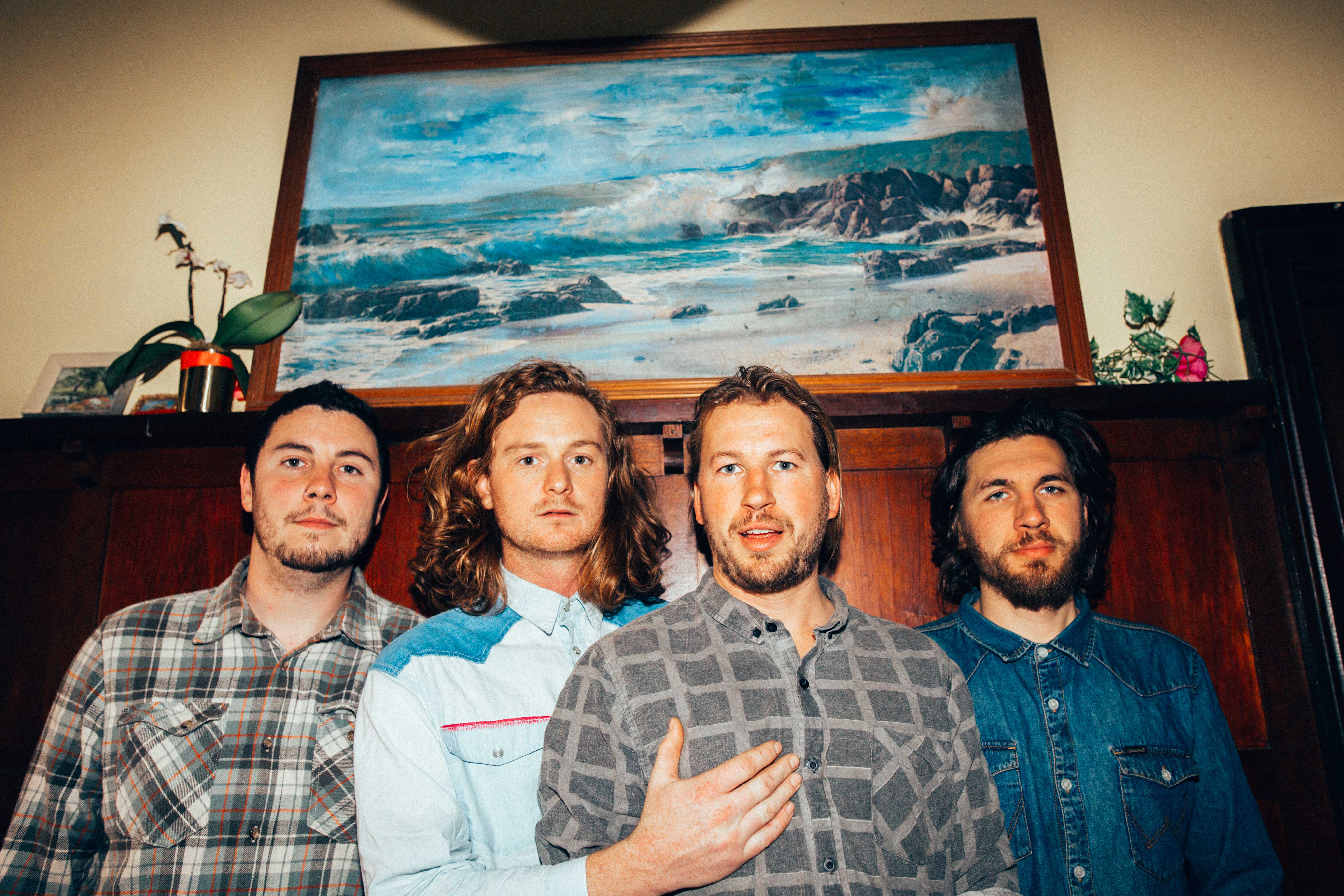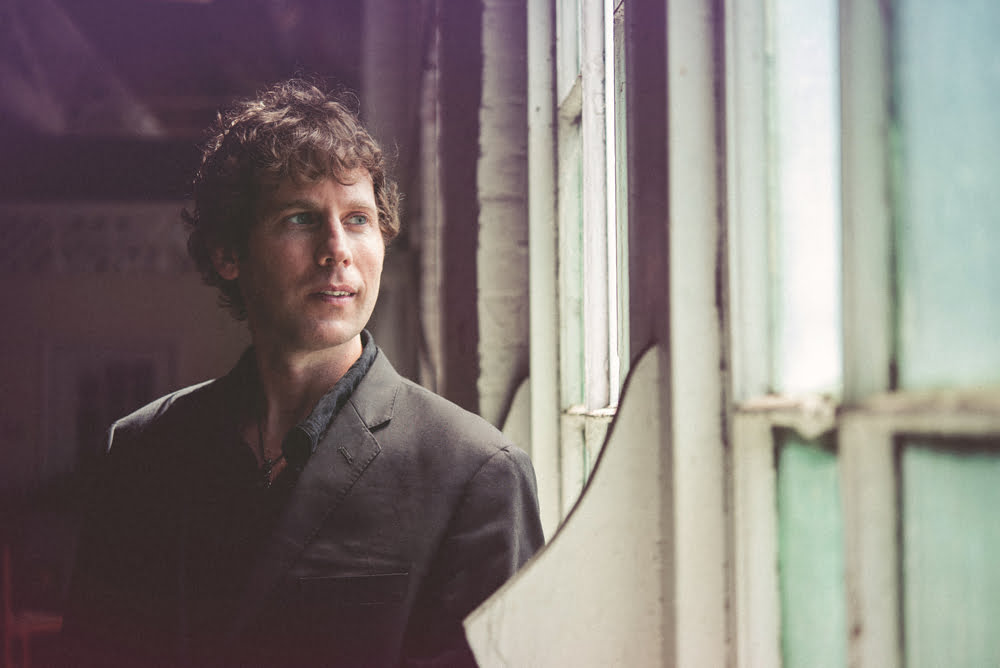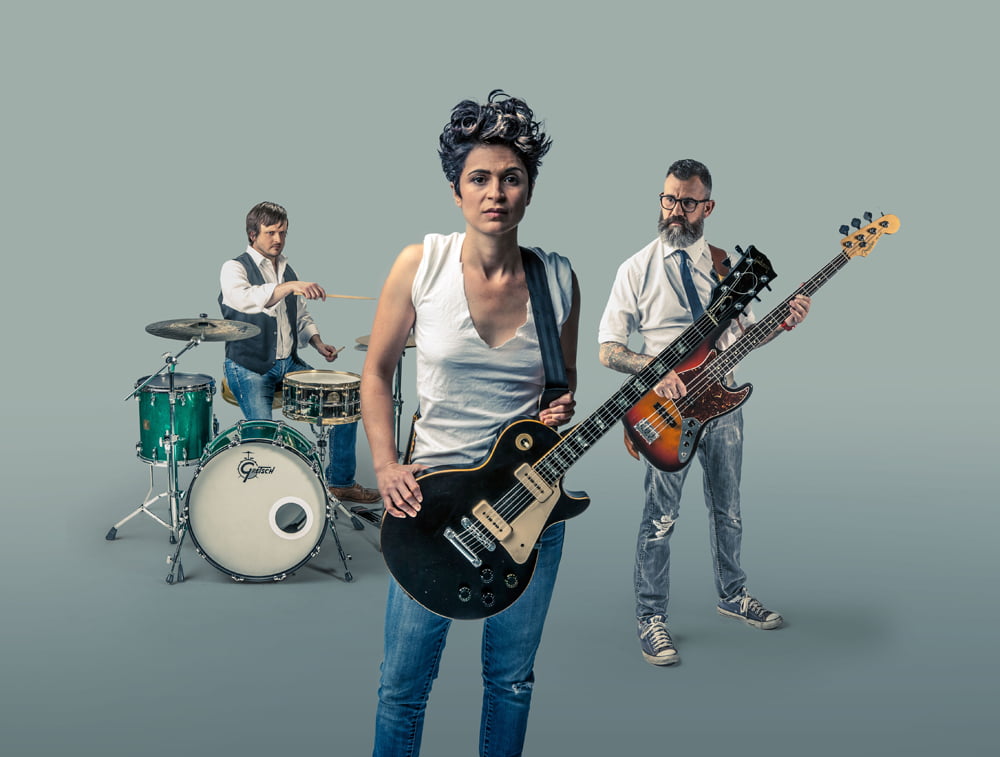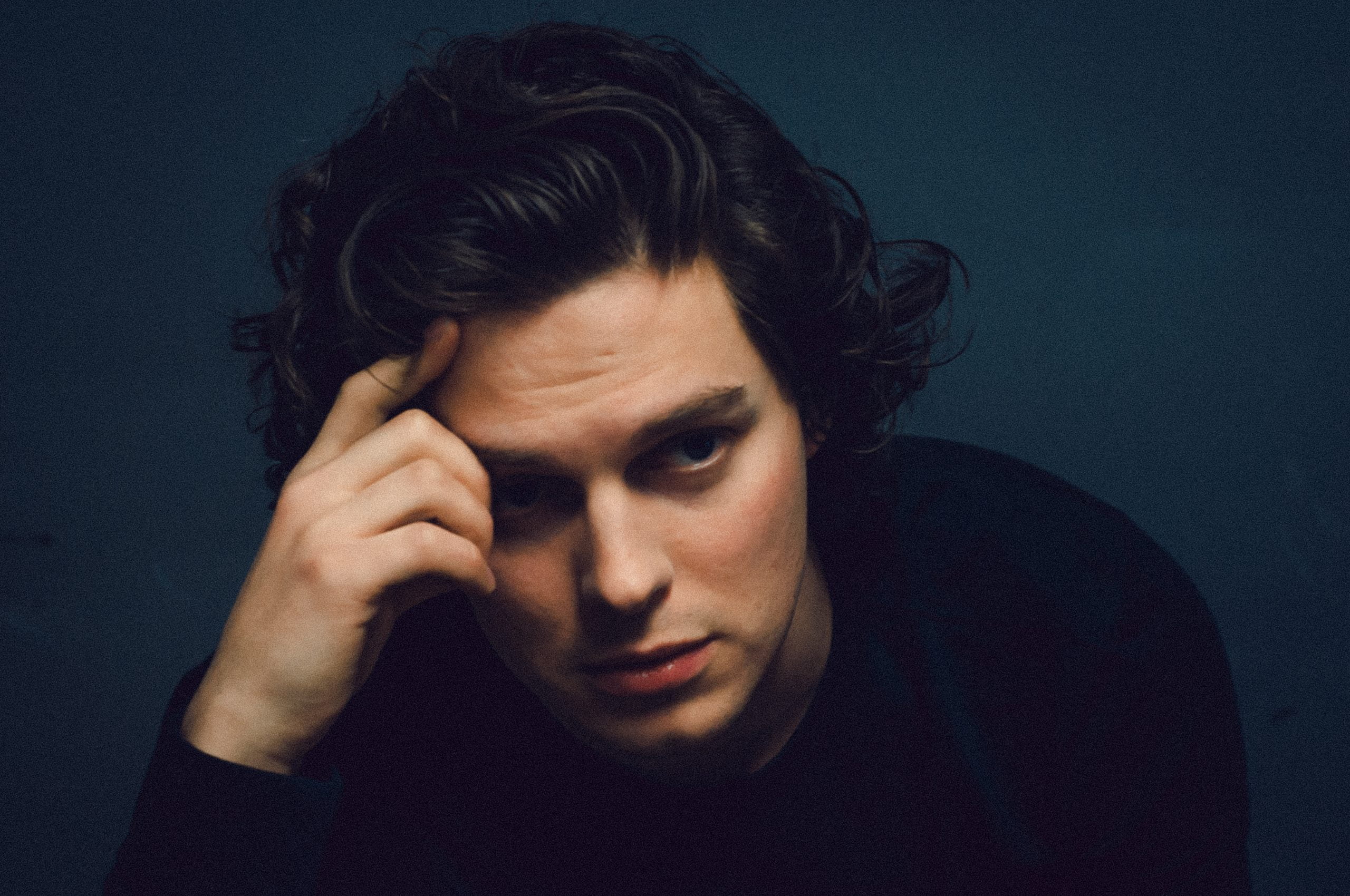It’s rare for Billy Strings to play a show in Nashville. This month, he’s doing nine of them.
The reigning IBMA Guitar Player of the Year will be hopping from venue to venue as part of a livestream series that serves as a fundraiser for important organizations, as well as a reunion with his band. He’ll launch the series at Nashville’s newest venue, Brooklyn Bowl, for a pair of shows on July 16 and 17. The run concludes on July 26 at 3rd & Lindsley. (Get the details.)
“Those are my boys and I’m just lucky to play with them,” he says of mandolinist Jarrod Walker, banjo player Billy Failing, and bassist Royal Masat. “I haven’t been able to hang with them a bunch. We went from being around each other 24/7, for months and months and months on end, to never seeing each other, period. So I’m just excited to get back together with my band, and not only play music, but just to be with them, and hang out, and make jokes. I just love those guys, you know?”
With time off the road, Billy Strings says he’s been redirecting his attention to his other hobbies, including fishing and hot rods. Looking ahead, he’ll also compete for IBMA’s 2020 Entertainer of the Year – his first time nominated in that category. (He’s also the reigning champ in the New Artist category, as well as Guitar Player of the Year.) In between visits to the lake and the garage, he called in to BGS.
Billy Strings: Yeah, we usually try to do that anyway with the set lists. Each show has its own set list and its own vibe. It depends on where we are and where we’re playing. When I write the set list, a lot of times I take into consideration geographic locations or famous people that may have lived around there. Anything like that I can throw into the set to make it relevant. So, yeah, for each show, we’re going to approach them just like we would in that way.
Also, we might cater to the specific venues. We’re playing the Station Inn and that’s a classic bluegrass place, so we might play a bunch of bluegrass that night. We’re playing Exit/In and City Winery and those are different vibes. City Winery can be our real classy, Frank Sinatra show, and at Exit/In we can get really psychedelic and rock out.
You’ll have an international audience tuning into these shows, so this is a chance for people who have never been to Nashville to see what it’s like. For those who may not understand the diversity of the music community here, how would you describe it to them?
It’s a big melting pot. Like you said, it’s very diverse. And there’s a lot of younger musicians that are on fire! Marcus King and Molly Tuttle and Sierra Hull… just so many people that are killing it. They all live around there. It’s a really great place to be as a musician. There are always people to make music with, and to pick with, and write music with. We’ll see if we can get a couple of guests to come down. Yeah, Nashville’s just crazy, man. You walk into the grocery store and you run into your favorite musician.
I, myself, personally have struggled with anxiety and panic attacks on tour, on the bus, on stage, and there’s a lot of people in the industry that suffer with the same shit. A lot of people may not speak out about it, or try to hide it, or don’t know who to look to for help. We just lost Jeff Austin and we just lost Neal Casal. There are a couple of other folks that are good friends of mine, that are traveling musicians that have been working so hard, and I think that has a huge deal to do with anxiety and depression.
I mean, when you’re in the limelight and you’re on stage and everybody wants to take your picture all the time, a lot of times it almost can be lonely. You never get any alone time and it can get weird. I know Jeff probably struggled with that. He told me about how he struggled being in the limelight and everybody critiquing his every move and everything he does is under scrutiny. That’s not a good place to be. …
The music industry can be really tough, believe it or not, for people who are on the stage and for people who are in the crews. There are plenty of organizations that help with that, whether it’s getting musicians health insurance or dental work or finding somebody a therapist. Backline is a huge, generalized hub where you can research and find all those different organizations and read about what is the right direction for you. You can even get with somebody on Backline and they’ll help you figure it out.
Well, because there’s a huge movement happening right now that I think is very important. Black people have been treated like shit, a lot, for a long time. And I just want to be on the side of history that is not an asshole. I got a lot of Black friends and my niece is Black. I’ve got family and friends and people that I love — and it shouldn’t even matter. …There’s a lot of miscommunication, a lot of divide, a lot of crazy shit going on in the country right now. I’m just all for love, man. I’m all for equality, I’m all for peace, so I wanted to donate a portion of the proceeds from these events to those organizations, just to help out.
Who are some Black musicians that influenced you?
Jimi Hendrix, definitely. Right off the bat. That’s the first guy I think of. He was amazing. Mississippi John Hurt, you know, he was a huge influence on Merle and Doc Watson. That’s who I grew up listening to, and I heard all that Mississippi John Hurt flavor in Merle Watson’s playing. That comes from the blues, the Delta blues. It goes on to Muddy Waters, B.B. King, all those cats. James Brown, come on!
I mean, without Black music, would there even be rock ‘n’ roll? I don’t even know if there would be bluegrass! Bill Monroe learned the blues from Arnold Schultz, a Black man who got him his first job. If you think about “bluegrass” – the word “blue” is in there from the blues. It’s got blues notes in it. A lot of bluegrass is just fast blues. And that’s Black music. Arnold Schultz taught Bill Monroe about that, and then he incorporated it into his music. All the music that we’re all inspired by has roots in Black music.
Yeah, I think there was a point where I really got turned onto Bob Dylan and his lyrics. A lot of the old songs that I grew up playing is considered folk music. The Carter Family stuff and a lot of the Doc Watson stuff. …My friend Benji’s family used to have these gatherings, like family reunions, where they would all play bingo. I went to one of those and won a bingo, so I got to go up to the table and pick a prize. And I picked Blonde on Blonde. …I started really getting into those lyrics and all of those words.
That’s where I started realizing, OK, I like Doc Watson a bunch because he’s such a beautiful guitar player and singer, among many other reasons. Bob Dylan does what Doc Watson does on his guitar with his words. … And then I got into John Hartford really heavy, and if you listen to John Hartford’s early music, man, it is some of the most lyrically proficient stuff you’re ever going to hear! It’s amazing! There’s that old saying, “Three chords and the truth.” I really think there’s something to that. A lot of those old folk songs are so simple, but what they’re saying is so real that it cuts you.
Photo credit: Jesse Faatz
